Talks about Medical Time Travel and Cryopreservation.
Category: life extension – Page 165
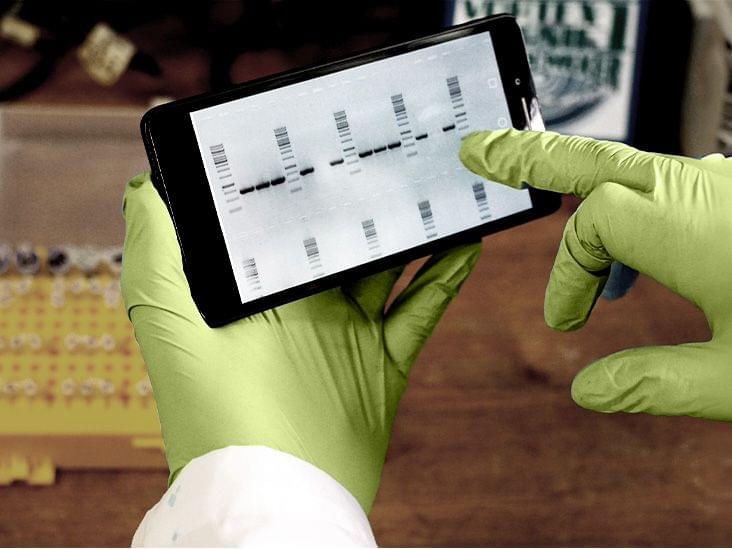
Plasma Metabolites Of A Healthy Lifestyle In Relation To Mortality And Longevity
Join us on Patreon! https://www.patreon.com/MichaelLustgartenPhDDiscount Links: At-Home Metabolomics: https://www.iollo.com?ref=michael-lustgartenUse Code: C…
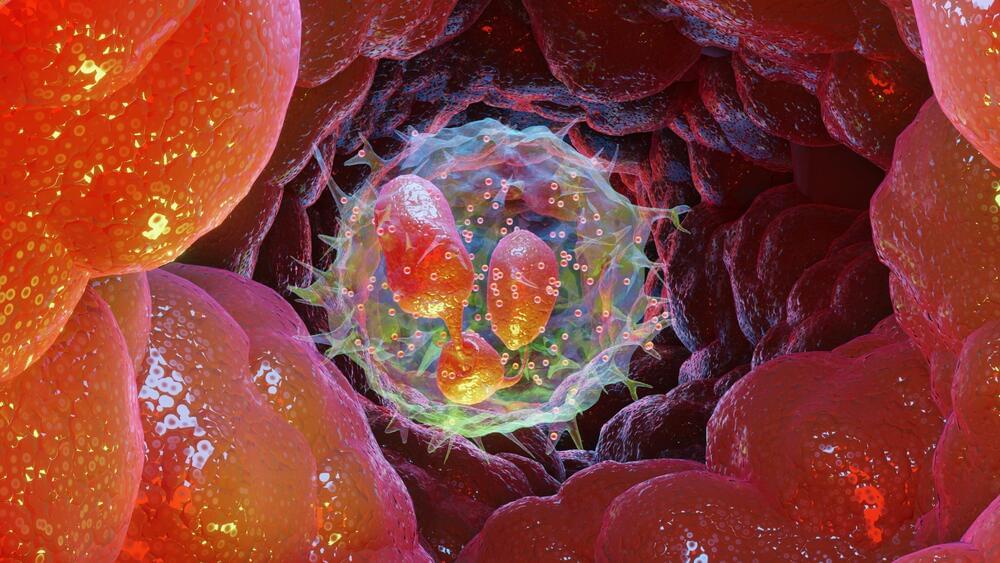
Neuropeptide Lacking in Diabetics Promotes Wound Healing
“In adults with diabetes alone—where poor blood flow can lead to quickly worsening wounds that are often very slow or impossible to heal—the lifetime risk of developing a diabetic foot ulcer (DFU), the most common diabetes-related wound, is 20–35 percent and this number is rising with increased longevity and medical complexity of people with diabetes,” stated lead author, Yen-Zhen Lu, PhD, an investigator at ARMI.
Nociceptors— neurons that sense pain, tissue damage, and inflammation, among other functions— respond to wounds by producing a neuropeptide called calcitonin gene-related peptide (CGRP). “Nociceptor endings grow into injured skin and muscle tissues and signal to immune cells through the neuropeptide CGRP during the healing process,” the authors wrote. Immune cell response in neutrophils, monocytes, and macrophages are modified to encourage active repair in the region.
Individuals with diseases like diabetes or elderly people have reduced production of CGRP, leading to poor, inefficient, or incomplete wound healing. The new study explores the impact of CGRP alone by introducing it into diabetic mice as well as mice without nociceptors. “Delivery of an engineered version of CGRP accelerated wound healing and promoted muscle regeneration,” the authors wrote. “Remarkably, this neuropeptide acts on immune cells to control them, facilitating tissue healing after injury,” added co-author Mikaël Martino, PhD, associate professor, ARMI.
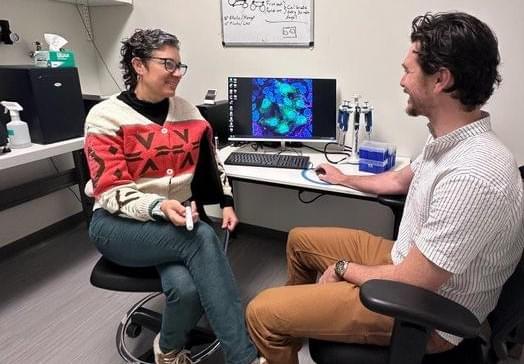
Tardigrade Proteins in Human Cells: A Pathway to Slow Aging
How can the microscopic creatures, tardigrades, also called water bearers, help contribute to developing new medical treatments? This is what a recent study published in Protein Science hopes to address as a team of international researchers investigated how tardigrade proteins could replace certain medical treatments when refrigerating those treatments are unavailable, specifically regarding stem cell treatments, and could possibly slow the aging process.
One reason tardigrades are an intriguing option is due to their ability to start and stop suspended animation when presented with outside stressors. Now, researchers are attempting to introduce tardigrade proteins in human cells, and the researchers have found some surprising results.
“Amazingly, when we introduce these proteins into human cells, they gel and slow down metabolism, just like in tardigrades,” said Dr. Silvia Sanchez-Martinez, who is a Senior Research Scientist at University of Wyoming and lead author of the study. “Furthermore, just like tardigrades, when you put human cells that have these proteins into biostasis, they become more resistant to stresses, conferring some of the tardigrades’ abilities to the human cells.”
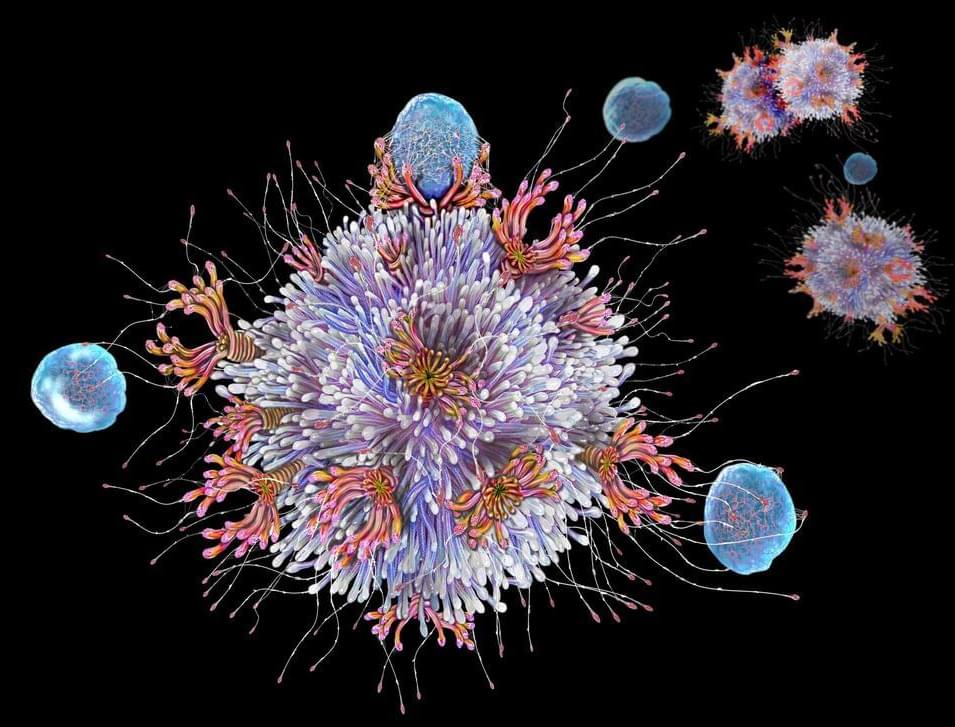
Antibody Therapy Rejuvenates Aging Mouse Immune System, Boosting Vaccine Response
The results of the team’s research showed that the approach, targeting a subset of hematopoietic stem cells (HSCs) that increase with age, rebalanced blood-cell production and reduced age-related immune decline. The treatment significantly improved the ability of geriatric animals’ immune systems to tackle a new virus, and to respond to vaccination, enabling the animals to fight off a new viral threat months later.
“This is a real paradigm shift—researchers and clinicians should think in a new way about the immune system and aging,” said Stanford postdoctoral scholar Jason Ross, MD, PhD. “The idea that it’s possible to tune the entire immune system of millions of cells simply by affecting the function of such a rare population is surprising and exciting.”
Weissman, who is professor of pathology and of developmental biology, and Kim Hasenkrug, PhD, the chief of Rocky Mountain Laboratories’ Retroviral Immunology Section, are senior authors of the team’s published study in Nature, titled “Depleting myeloid-biased haematopoietic stem cells rejuvenates aged immunity.” Ross and Lara Myers, PhD, a research fellow at Rocky Mountain Laboratories, are lead authors of the report, in which the team concluded, “The clinical development of safe protocols to rebalance HSCs could have broad effects on a number of age-associated issues.”
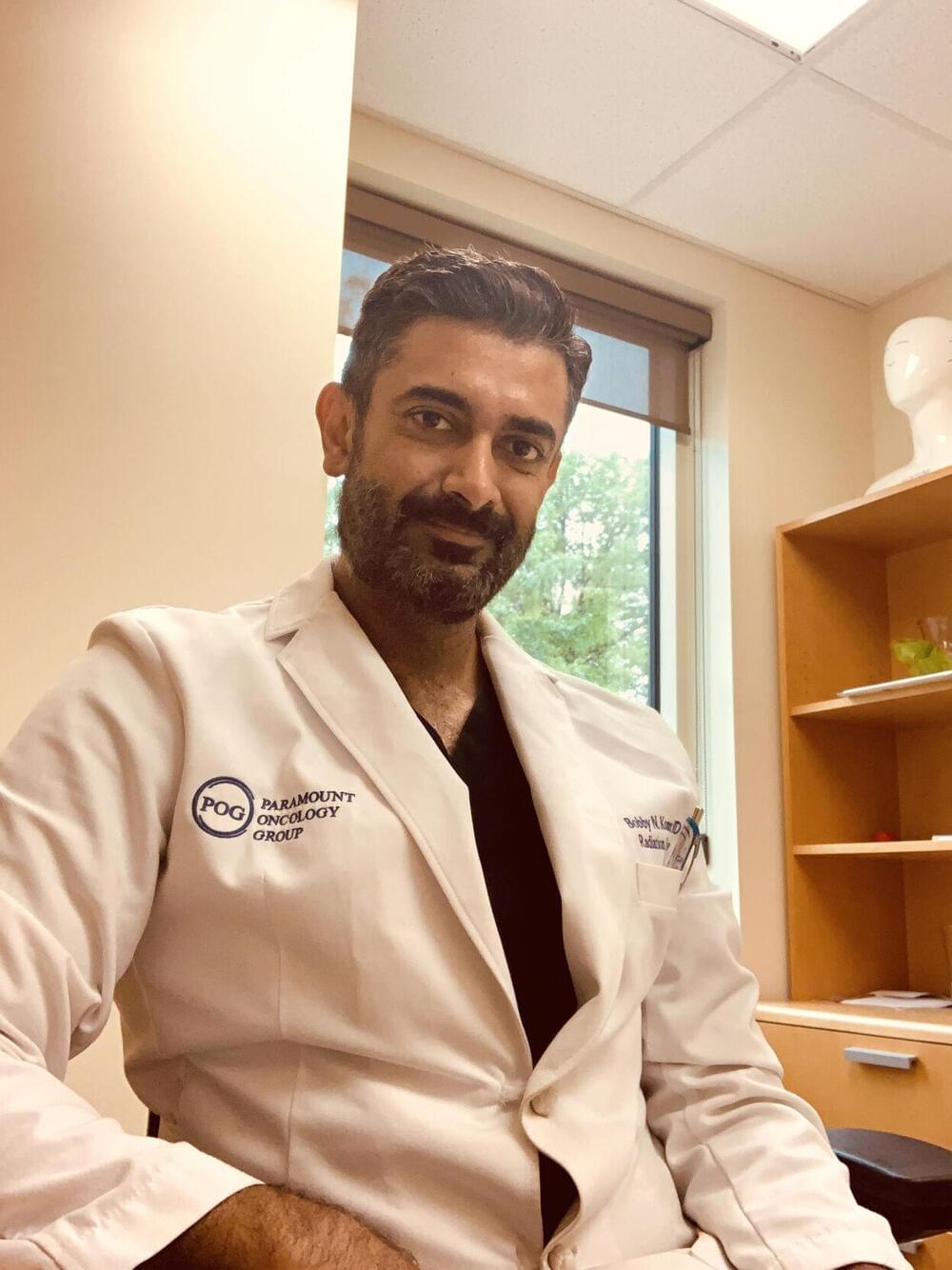
Groundbreaking study shows how lifestyle changes can reverse biological aging
In a groundbreaking study led by Dr. Karen Fitzgerald, six women between the ages of 45 and 65 experienced a remarkable reduction in their biological age by an average of five years in just eight weeks. The findings offer promising insights into the potential of lifestyle changes to combat aging.
The study, which focused on the distinction between chronological age and biological age, revealed that while chronological age remains fixed, biological age — the age of one’s cells — can be influenced and even reversed through targeted interventions.
Using Dr. Steven Horvath’s epigenetic clock, which measures 353 markers associated with methylation changes linked to aging, the researchers assessed the participants’ biological age before and after the intervention.
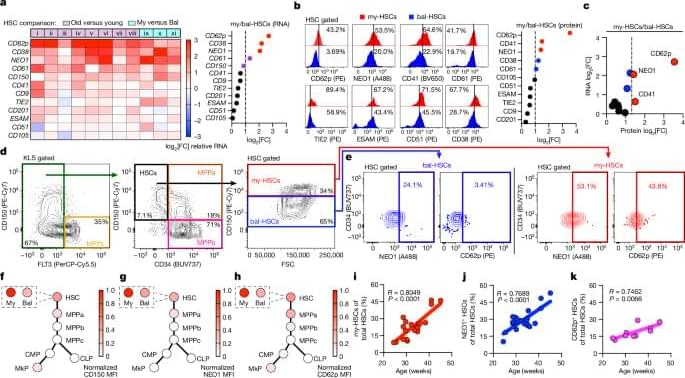

Senolytic CAR T cells reverse aging-associated defects in intestinal regeneration and fitness
Intestinal stem cells (ISCs) drive the rapid regeneration of the gut epithelium to maintain organismal homeostasis. Aging, however, significantly reduces intestinal regenerative capacity. While cellular senescence is a key feature of the aging process, little is known about the in vivo effects of senescent cells on intestinal fitness. Here, we identify the accumulation of senescent cells in the aging gut and, by harnessing senolytic CAR T cells to eliminate them, we uncover their detrimental impact on epithelial integrity and overall intestinal homeostasis in natural aging, injury and colitis. Ablation of intestinal senescent cells with senolytic CAR T cells in vivo or in vitro is sufficient to promote the regenerative potential of aged ISCs. This intervention improves epithelial integrity and mucosal immune function. Overall, these results highlight the ability of senolytic CAR T cells to rejuvenate the intestinal niche and demonstrate the potential of targeted cell therapies to promote tissue regeneration in aging organisms.

Multiomic approach boosts disease prediction accuracy beyond traditional methods
🧬🔬📊
In a recent study published in the journal Nature Aging, researchers assessed the added predictive value of integrating polygenic risk scores (PRSs) and gut microbiome scores with conventional risk factors for common diseases in a long-term cohort study.
Analysis: Integration of polygenic and gut metagenomic risk prediction for common diseases. Image Credit: remotevfx.com / Shutterstock.
Background
Multiomic technologies are transforming disease prediction by integrating genomic and microbiomic data, offering new insights into age-related conditions like heart disease, diabetes, and cancer. Previously, risk assessments relied mainly on demographic, lifestyle, and clinical metrics. Now, the integration of PRSs and gut microbiome analysis into risk models promises to improve predictive accuracy beyond traditional factors. PRSs provide a cost-effective genetic predisposition metric, while the gut microbiome adds a novel dimension to understanding disease risk. This emerging approach necessitates further research to refine its accuracy and ensure its effectiveness across various populations and healthcare systems.